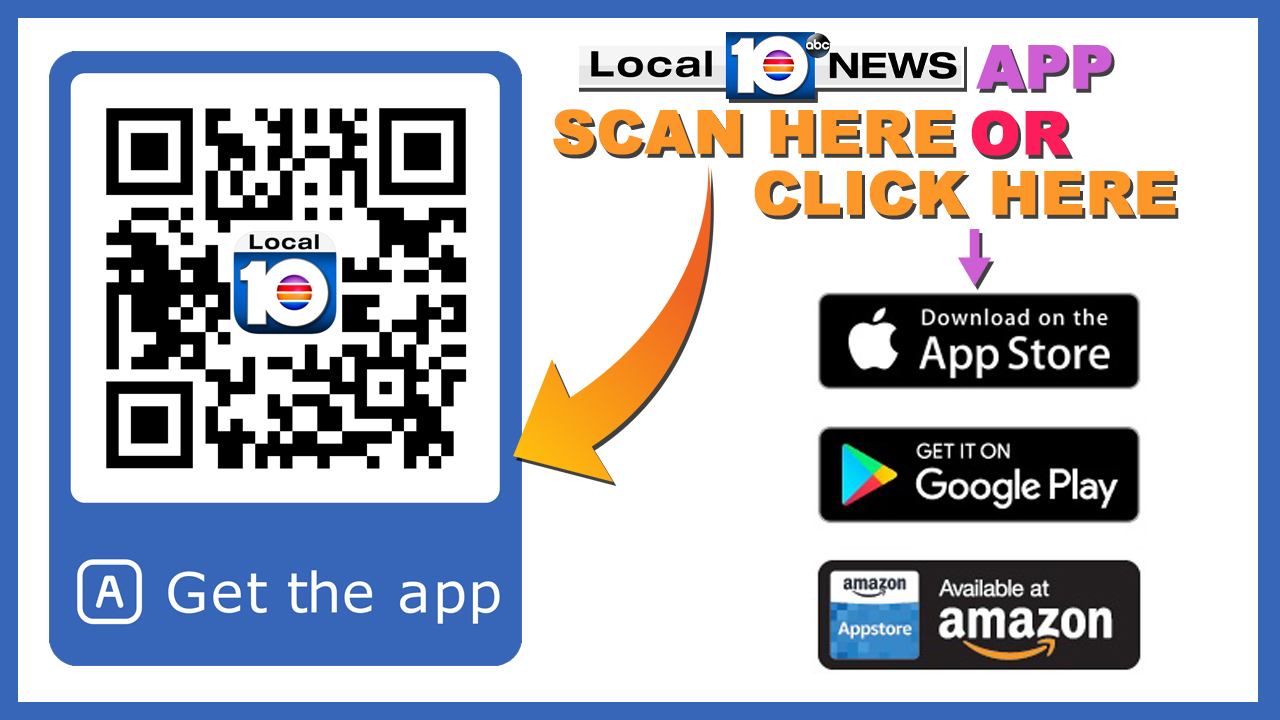PEMBROKE PARK, Fla. – Your locks are intended to keep you safe and keep intruders out, but no lock is safe if a thief has the key to your home.
What if burglars could get a copy of your house or car key just by using their cellphones and an app you may never have heard of?
Crime statistics show that more than 1.5 million burglaries happen in the United States each year, and more than 100,000 happen in the state of Florida.
Imagine if criminals already had the key to your front door.
"(It's) a really convenient, secure way to copy keys," Greg Marsh, the CEO of KeyMe, told Local 10 News investigative reporter Amy Viteri.
Marsh said he started the company after his wife was locked out of her house and had a bad experience. He said KeyMe allows people to conveniently copy their house or car keys without the cost and hassle of calling a professional locksmith. People can download KeyMe’s free app, take front and back photos of the key they want to copy and place the order.
The duplicate keys can arrive in the mail or a customer can visit one of the many KeyMe kiosks located in brick-and-mortar stores to get a key on the spot.
But what if you are not the one ordering a copy of your key?
"No matter what, people should be really thoughtful and prudent with how they manage their keys,"
Marsh said.
Local 10 wanted to see how easy it was to get a copy of someone's personal keys. Viteri did a test inside the Local 10 newsroom. Within minutes, she found several sets of keys that had been left unattended on colleagues' desks, including the house key for Local 10 News reporter Jenise Fernandez.
Moments later, Viteri photographed the keys' fronts and backs and scanned them into the KeyMe app.
Marsh said, as an added security feature, the app requires the key to be removed from the key ring and photographed on a white piece of paper to prevent so-called flyby photos taken by someone who does not have actual possession of the key.
Viteri ordered some keys by mail and also went in person to a KeyMe kiosk, where she ordered a copy of Fernandez's key.
Within a couple of minutes, the key was made. Viteri went to Fernandez's home and let her try the duplicate key for herself.
"It works," Fernandez said after unlocking the front door to her home. "How did you do that? My keys are in my purse and my key's silver. It's not gold."
She said the app made her think twice about handing over her keys to just anyone, or letting someone else park her car.
"I didn't even think about valet, and I valet everywhere," she said.
KeyMe, however, maintains that its process is more secure than using a traditional locksmith.
"We can tell who made it," Marsh said. "We've got a financial paper trail. We've got video footage of keys being made at the kiosk. We use biometrics to log in."
He said the company is also able to work with law enforcement agencies to identify if a key of interest in a crime has been copied.
"For a would-be thief, we are the riskiest method for them to copy a key," Marsh said.
Yet the technology leaves some feeling exposed.
"Kind of creepy, because anyone can take a picture of your key if you leave it," Fernandez said. "I would be more concerned with somebody, that key getting in the wrong hands."
Regardless of whether the KeyMe app is right for you, it's recommended that you keep an eye on your keys at all times.
